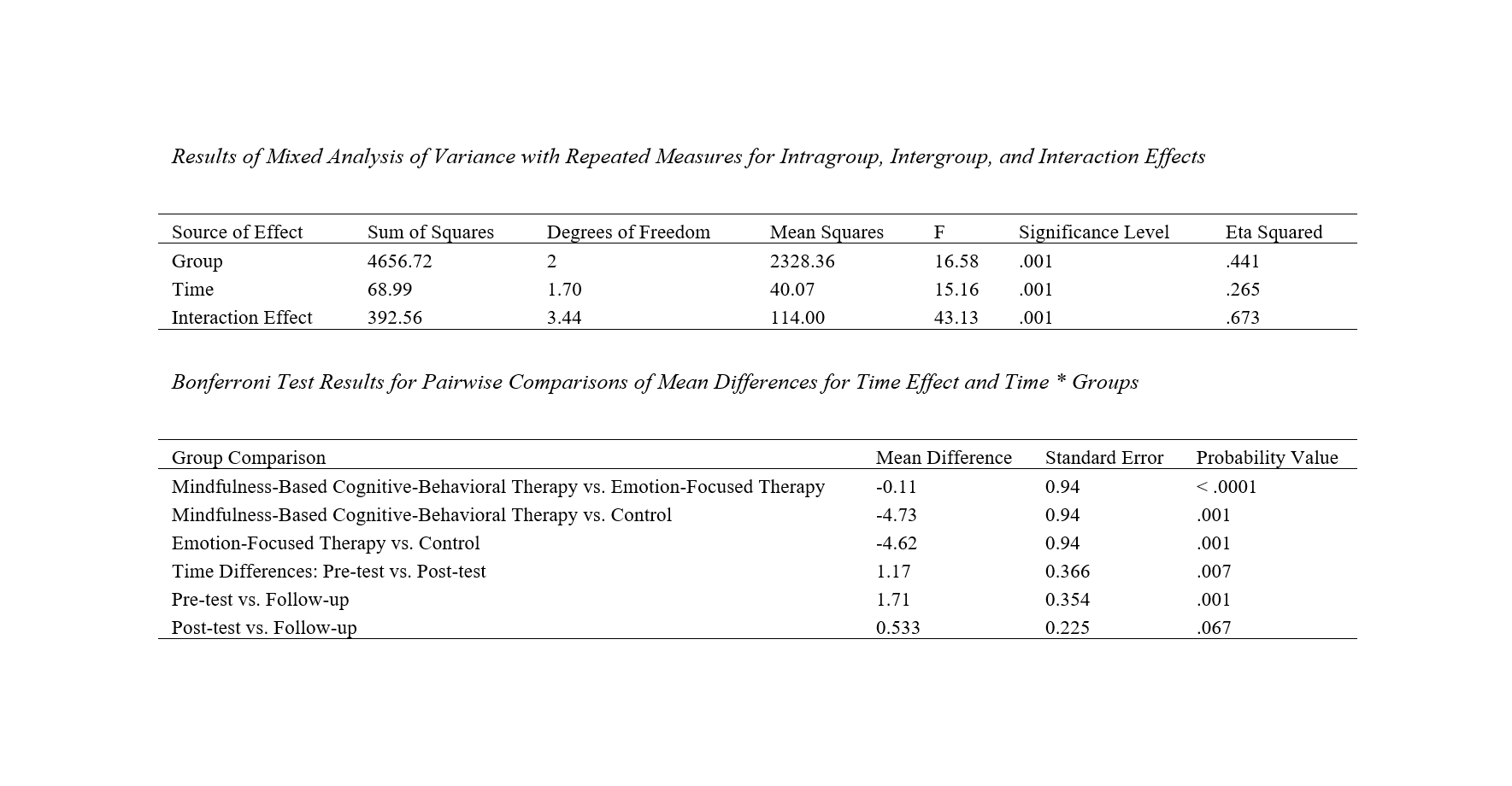Comparison of the Effectiveness of Mindfulness-Based Cognitive-Behavioral Therapy with Emotion-Focused Therapy on Sensation Seeking in Adolescents with Internet Addiction
Keywords:
Mindfulness-Based Cognitive-Behavioral Therapy, Emotion-Focused Therapy, Sensation Seeking, Internet AddictionAbstract
Objective: The present study aimed to compare the effectiveness of Mindfulness-Based Cognitive-Behavioral Therapy (MBCBT) and Emotion-Focused Therapy (EFT) on cognitive sensation seeking in adolescents with Internet addiction.
Methods and Materials: This study was a pre-test, post-test, follow-up design with a control group. The population included adolescents with Internet addiction residing in Tehran, from which 45 eligible volunteers were selected using convenience sampling. Data were collected using Young's Internet Addiction Test (Young, 1996), and Zuckerman's Sensation Seeking Scale (Zuckerman, 1978) at pre-test, post-test, and follow-up stages. Eight 90-minute sessions of MBCBT and eight 90-minute sessions of EFT were conducted for the experimental groups. Data were analyzed using repeated measures analysis of variance with Bonferroni post hoc tests using SPSS version 26.
Findings: The results indicated that both MBCBT and EFT had a reducing effect on sensation seeking (p < .001). MBCBT and EFT showed a significant decrease over time in sensation seeking (p < .001).
Conclusion: Based on the findings of the current study, there was no significant difference between MBCBT and EFT in reducing sensation seeking among adolescents with Internet addiction.
Downloads

Downloads
Additional Files
Published
Submitted
Revised
Accepted
Issue
Section
License
Copyright (c) 2024 Sheila Shojeyan (Author); Afsaneh Khajevand Khoshli (Corresponding Author); Leila Sadat Azizi, Javanshir Asadi (Author)

This work is licensed under a Creative Commons Attribution-NonCommercial 4.0 International License.








